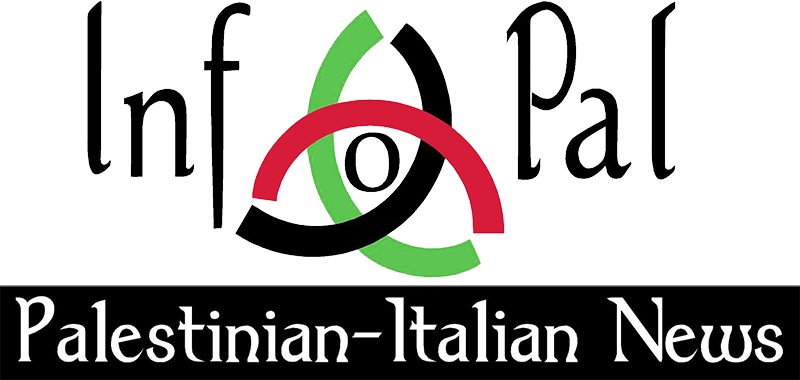
Riceviamo dal prof. Michelguglielmo Torri e pubblichiamo.
Cari amici,
ci sono terroristi e terroristi. Quelli che hanno attaccato Mumbai hanno impiegato circa tre giorni per fare un po’ meno di 200 morti; quelli che hanno attaccato Gaza, ne hanno fatti oltre 200 solo il primo giorno (e hanno detto che si trattava solo dell’inizio). L’azione di quelli che hanno attaccato Mumbai è stata universalmente criticata; quella di coloro che stanno attaccando Gaza è stata autorevolmente giustificata dall’Amministrazione americana. A parte questo, qui da noi, alcuni canali televisivi ci hanno spiegato che era tutto un problema di frustrazione da parte della dirigenza israeliana, decisa a “costringere” Hamas ad una trattativa (ovviamente di pace). Insomma un massacro in un natalizio spirito di pace…
Di fronte a tanta barbarie da un lato e a tanto cinismo dall’altro, si resta francamente senza parola. Forse è il caso, questa parola, di darla agli arabi (palestinesi e no); magari ad arabi che non siano degli “zio Tom” (come, negli USA, venivano una volta definiti i neri che lodavano le virtù di un ordine sociale che li discriminava). Incomincio dal rapporto di un testimone oculare, un palestinese, rapporto pubblicato oggi su “Gulf News”.
Buona lettura.
Michelguglielmo Torri
ci sono terroristi e terroristi. Quelli che hanno attaccato Mumbai hanno impiegato circa tre giorni per fare un po’ meno di 200 morti; quelli che hanno attaccato Gaza, ne hanno fatti oltre 200 solo il primo giorno (e hanno detto che si trattava solo dell’inizio). L’azione di quelli che hanno attaccato Mumbai è stata universalmente criticata; quella di coloro che stanno attaccando Gaza è stata autorevolmente giustificata dall’Amministrazione americana. A parte questo, qui da noi, alcuni canali televisivi ci hanno spiegato che era tutto un problema di frustrazione da parte della dirigenza israeliana, decisa a “costringere” Hamas ad una trattativa (ovviamente di pace). Insomma un massacro in un natalizio spirito di pace…
Di fronte a tanta barbarie da un lato e a tanto cinismo dall’altro, si resta francamente senza parola. Forse è il caso, questa parola, di darla agli arabi (palestinesi e no); magari ad arabi che non siano degli “zio Tom” (come, negli USA, venivano una volta definiti i neri che lodavano le virtù di un ordine sociale che li discriminava). Incomincio dal rapporto di un testimone oculare, un palestinese, rapporto pubblicato oggi su “Gulf News”.
Buona lettura.
Michelguglielmo Torri
GULF NEWS
Eye-witness: Morgues overflow with bodies
By Belal Badwan, Special to Gulf News
Published: December 28, 2008, 00:58
Gaza City: The Ash-Shefa medical compound here presents a gruesome sight with shocked families picking through body to identify their loved ones after two waves of Israeli airstrikes killed more than 206 Palestinians.
Death shrouds the hallways of the medical compound, its smell creeping in from all corners as I was wandering inside.
Death shrouds the hallways of the medical compound, its smell creeping in from all corners as I was wandering inside.
Amputated bodies are strewn throughout hallways because the morgues in the city can no longer accommodate the dead.
In one corner a man stands with his seven-year-old son in a cardboard box because the hospital ran out of sheets to cover the dead with. This is how he will carry him home and bury him.
Another man stands dazed, in shock after watching his son Mohammad killed during his graduation ceremony at the de facto police headquarters. The father of one of Mohammad’s classmates stood next to his son as he was decapitated. The man is still screaming.
In the packed hospital waiting room a mother sits silently staring into the distance; her son was pronounced dead shortly after she brought him in.
Despite the ugly scene at the medical compound, people poured in. Seeming not to notice the horror of blood and body parts, they hurriedly try to pick out clothing or personal items of loved ones hit by Israeli missiles somewhere in the Gaza Strip.
Twelve-year-old Ayaman is screaming at his father who tries to prevent him from seeing the bodies of his uncle and brother, torn to pieces under sheets. “I’m not afraid to see them,” he screamed. In a rage as his father holds tight, Ayman catches the hand of a resistance fighter; “shell and kill them as they did to us,” he says.
Yaha Muheisen stops searching for his son’s body for a moment to speak to me. “Whatever Israel did it will not defeat us,” he says, “It will not weaken our power.”
Forty-year-old mother Nawal AlLad’a did not find the bodies of her two sons in the medical compound, so she left to look amid the rubble.
Husam Farajallah, a university student, was at the hospital collecting the body of his relative. He called what happened in Gaza a “black day” in the lives of all Palestinians, and wondered how the world could watch and do nothing.
Medics in Gaza confirmed that the majority of those killed in the day’s attacks were civilians, including men, women and children. Most were cut to pieces, making the job of doctors and medics difficult, and the task of giving bodies back to families painful and gruesome.
The medics working in the field continue to dig up bodies from the densely populated urban areas of Gaza City.
The scenes remind many Palestinians of the images that came out of the Sabra and Shatila massacres from Beirut in 1982, when thousands of Palestinians were killed by the Lebanese militias.
As the death toll climbs and no word on a halt to the attacks has come from Israel, Gazans fear for their lives and loved ones.
– Belal Badwan, is a journalist based in Gaza
_
